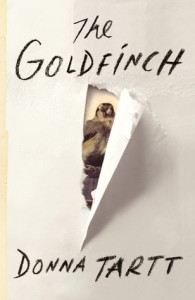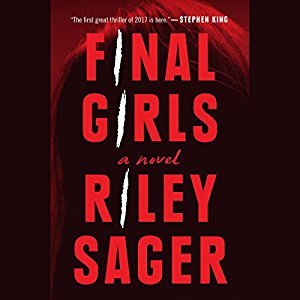I hope that you are all staying healthy and finding solace in activities that comfort you.
Book sales surge as self-isolating readers stock up on ‘bucket list’ novels

From the U.K. comes news that “Book sales have leapt across the country as readers find they have extra time on their hands, with bookshops reporting a significant increase in sales of longer novels and classic fiction.” Sales are also up for longer books such as Hilary Mantel’s recently released The Mirror and the Light as well as older long books, including The Goldfinch and The Secret History by Donna Tartt, Infinite Jest by David Foster Wallace, and A Little Life by Hanya Yanagihara.
When we were initially introduced to the idea of staying home, I thought this sounded like a good opportunity to tackle some of the longer works on my TBR shelf, like Middlemarch by George Eliot (794 pages, exclusive of endnotes), Anna Karenina by Leo Tolstoy (817 pages, exclusive of notes), Ulysses by James Joyce (732 pages), and The Golden Notebook by Doris Lessing (568 pages). But that plan didn’t turn out very well.
After about a week and a half of being unable to read anything other than news stories, I was finally able to read books once again. But I’ve been sticking with my backlog of mysteries and thrillers, as I still don’t have the ability to focus on something more demanding for a long time. So all of those Big Books will still be on my shelves waiting for me long after the current health emergency has passed.
However, I can also see the appeal of something long by less demanding than Ulysses. I’ve heard several people mention rereading the Harry Potter series or The Lord of the Rings, both of which sound like excellent choices for these unsettled times. But I won’t be going there until I’ve made a lot more progress on my backlog of Book of the Month goodies.
The Girl in the Title of the Crime Novel: The Great Crime Fiction Disambiguation Project

Over the past several years there’s been a lot of discussion about the number of books with the word girl in the title:
Girl is the perfect word for inspiring curiosity and fear in psychological thrillers: since the Bible, or the Greek myths, the protection of girls has been paramount to holding a society together. Girls, after all, become women, and women birth and raise the next generation, keeping civilization going. So the question here is not why did girl instantly become so popular, but how it reflects on our cultural preoccupation with keeping women—made even more impotent and infantilized by being labeled girls—under patriarchal control.
Here Lisa Levy discusses eight such books, with particular emphasis on how these books and their characters reflect the effects of patriarchy and misogyny.
Our Obsession with Beautiful Dead Girls Is Keeping Us from Addressing Domestic Violence
Here Jessica Moor addresses the same general topic but with a more focused emphasis: how the normalization of the violent man coexists with another standard trope, the beautiful dead girl.
Her conclusion:
no matter how fascinating the machinations of a random killer seem, they cannot be more chilling than the reality that, for women, the most dangerous place in the world is not a bar or a dark alleyway or a deserted forest. It’s their own home.
The Best Books for Distancing Yourself From Reality Right Now
Esquire has some suggestions of “literature for an escape from the ails of restlessness and anxiety.” The list comprises mostly fiction, but there’s a wide enough range that everyone can probably find at least one or two appealing books.
How a Chinese-American Novelist Wrote Herself Into the Wild West
“C Pam Zhang’s debut, “How Much of These Hills Is Gold,” is one of several new or forthcoming books by Asian-American writers set in a period that historically hasn’t recognized them.”
Never mind the Brits, here are five American novels perfect for ‘Masterpiece’ treatment
Why does PBS outsource almost all of its costume dramas to the Brits, in some cases simply importing and screening BBC productions as Masterpiece series? Why not look to the American canon for worthy novels in which men sport top hats, women get laced into corsets and carriages make their gravel-crunching way to glittering receptions or illicit assignations?
Dennis Drabelle has some suggestions for how PBS can provide U.S. audiences some dramas from their own literary heritage.
© 2020 by Mary Daniels Brown

